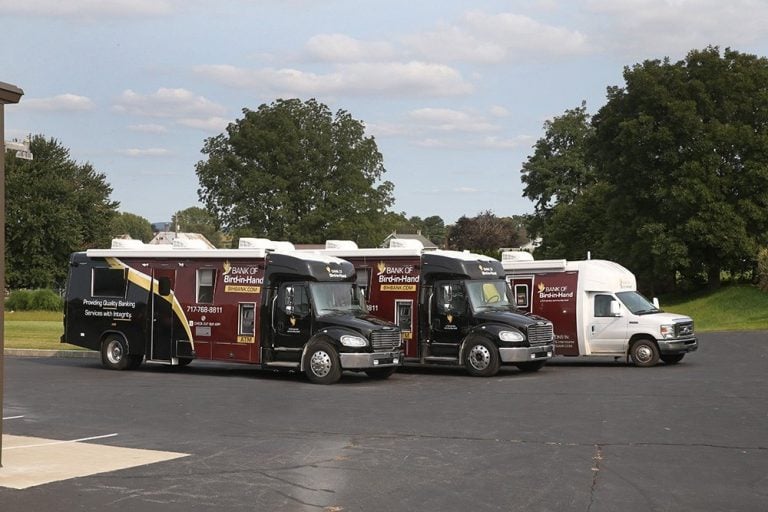5 Business Tips From The Amish
It’s been over five years since my Amish business book (Success Made Simple: An Inside Look At Why Amish Businesses Thrive) was released, and it’s neat to still bump into people who’ve read it or at least heard of it 🙂 I recently met someone in the latter group from Portugal, of all places.
 In a nutshell, I interviewed 60 Amish entrepreneurs and then distilled their wisdom into an easy-to-read business manual. Ideas which made the cut include the importance of trust, humility in management, and getting family involved in the business.
In a nutshell, I interviewed 60 Amish entrepreneurs and then distilled their wisdom into an easy-to-read business manual. Ideas which made the cut include the importance of trust, humility in management, and getting family involved in the business.
Recently on entrepreneur.com, contributor Sandi Krakowski shared her own list of 5 business success ideas based on Amish practices. You’ll find them below in short form with my summaries, and you can read the full article here.
I didn’t emphasize all of these ideas in Success Made Simple, but there is definitely some overlap. Some good common sense in Sandi’s list:
- Don’t market or sell anything you don’t believe in – Otherwise you’ll ruin your good name, and worse, weigh down your conscience.
- Care about people deeply – This shines through in customer service and hospitality.
- Do things differently than everyone else – We pay attention to the Amish because they stand out (usually for good reasons).
- Remain in touch with your clients – Serve others and treat them like family.
- Work hard when everyone else is sleeping – Hard work gives you an edge over those who let themselves be distracted.
I know a lot of us have bought things from Amish shops and stores, or had other business relationships with them.
For anyone who’s done business with the Amish–why do you think they are successful?






At least six Amish stores I am very familiar with have started small and then have invested profits into further developing and enlarging their stores. I have shopped at the following Amish stores for many years and it has been fun seeing how they all have expanded and number of customers has increased: Graber’s Discount Grocery, Loogootee, Indiana; Country Salvage, Arcola, Ill.; Beachy’s Bulk Foods, Arthur, Ill.; E & S Bulk Foods, Shipshewana, Ind.; Stringtown Grocery, Kalona, Iowa; and Detweiler Country Store, Cub Run, Ky. Another factor may be is that they all sell products used by Amish in their communities as well as by non-Amish. A lot of advertising is just by word of mouth. That’s how I found out about most of these stores — other non-Amish who have shopped there told me about them.
Nice examples Al from a number of states. I have been to at least one or two of those, to be frank food stores are usually the most fun for me for obvious reasons 🙂 … On a side note, how long did it take you to find out how to pronounce “Loogootee”?
It took me several visits to the area before I got the pronunciation correct for Loogootee. Like many people, I first pronounced it as “Lew-gew-tee” (lew/gew rhyming with new) not “Luh-goh-tee” as the residents of the area pronounce it, with primary on the second syllable.
Loogootee
Ha, ha, ha on the Loogootee!! Indiana… land of the Indians, hence, Loogootee!!! You don’t think about how this sounds when you live here!!
I was in Grabill yesterday, and you will be glad to know that things are all normal there. Thinking it over…I didn’t see one Amish person the whole day!! That’s not normal!!! Hmmm…
Interesting article, Erik. Thanks for doing what you do.
My pleasure Harriet. I love interesting place names and even more if they have an unexpected pronunciation 🙂
They are kind…always! At least that is my experience. They are respectful and willing to help, too. We stop in on the Amish businesses in KS and CO frequently and have never been disappointed.
It’s funny, some Amish stores I have been in, the people there are very open and talkative and friendly, while in many of them, they can be a little cold for lack of a better word. It may be the case that some of these are younger women and I am a man so there might be a comfort level thing there…in some cases they are also more Amish-oriented stores so they don’t see as many non-Amish.
Tips for better business
Erik, Our findings are the same as yours for the most part. And there also those places that no one is around and it’s on your honor when put your money in the box! We have a couple egg stops that function that way. It’s so old fashioned…how great is that! It’s a journey back in time when your hand shake sealed the deal!
If the kids are running the store they are fun to converse with. If you need more help or have questions, they might run and get mom out of the garden to assist us!
At a pumpkin and squash stop we were looking through the produce and from around the corner came the Mrs. Well, she was covered in blood!!! Her full, not half, apron, and her arms up to her elbows, were bloody! It’s that first impression that takes your breath away! lol We didn’t see that she was butchering chickens behind the shed. Because mom was busy the kids were taking care of the customers. Mom asked if we needed any help and we said no, the kids took our money and mom went back to her chickens. End of story.
Years ago when so many kids grew up on a farm seeing mom ,dad, gramma or grampa covered in blood wasn’t a big deal. It was butchering time. If the neighbors stopped in they didn’t get excited either. Well, bring some townies out to the rural Amish countryside, and you’ll get an education! lol
Erik, you’ve known that we’ve gone “Amishing” for years which gives me good story material! Being married to a farm girl gives me stories to share as well! My Mother-in-law raised chicken, ducks and geese to butcher and sell, so we know all about it! Fond memories of days gone by. 🙂
Time to fire up the cookstove and make some supper.
Yes it is nice to see the kids involved and also the honor system box, two throwback aspects of Amish business. And butchering chickens is “real” life, isn’t it? 🙂
In addition to the article, I think there are some practical reasons why the Amish are successful in business. First, they don’t have to go to school to age 25 year or older, and in that extra time, they have the ability to start a new business and wait for it to grow while it is still “in the red.” I’m not knocking education, of course, it is a good thing. But it does take a lot of time. Also, the average American is deeply in debt after their education whereas the Amish are not.
Second, because of their deep commitment and love toward family, would-be Amish entrepreneurs know that they will not be tossed out on the street if their business is not successful right away. They can continue to live where they’ve always lived. Again, they have time to build their businesses.
Third, they do not have vicious competition. While I’m sure there are Amish people in the same businesses, I don’t believe that they do whatever they can to destroy their competition. You will often find that to be the case in the “English” world.
Fourth, their businesses are often conducted on their own property, and that also saves a lot of money, especially during the start-up period. Also, I believe they do not have to pay social security and workers’ compensation taxes, so that helps as well.
Having said all of that, I think they are a wonderful model to follow, both in terms of business and personal life. Reading about them and learning about them is a joy. I wish them all the very best of success!
Great additions Melanie…I think there is definitely the opportunity for more hands-on experience, earlier…and also greater security in several ways, which you mention.
Eric;
What do you know about the Amish bear the Mayo Clinic? I’ve been their and their wonderful people!
I’d asked you to; remind Mayo Patients to refrain from their Silly Muster Cameras & Not look like Ridiculous Touiest! Tour by a local person in a small mini bus is fine! Thank you!
One particular Amish business I’ve dealt with has impressed me with the quality they deliver, and their personalized service (and communication with me along the way to make sure I got what I wanted—not something I often find in the “English” world!). I know my needs (as a customer) were important to this family-run business, and I’d definitely deal with them again. Even though it took a while (personalized, customized service), it was worth it! (Taught me patience is part of the price of quality & good service.)
Melanie has some very valid points, especially about education taking so much time (and costing so much—long after you’re done!) Also, the cut-throat attitude in the English business world makes you wonder how nasty the people you deal with (and give your money to)really are!
Erik, I’d be interested in a side by side comparison of Amish business practices & philosophies vs., say, someone like Donald Trump’s practices & philosophies. Kinder/gentler vs. cut-throat, in other words. Both can be successful, but at what price to the consumer and society in general? (There’s an idea for a future book, Erik!) 😉
How interesting! I hope these things are studied/discussed in business classes from high school through university level. They sure need to be!
Alice Mary
That would make a good book or at least article Alice Mary 🙂 I’d like to know if Amish examples are used in any business programs. I haven’t heard of specific examples but I wouldn’t be surprised if someone or someones are using them.
Amish success in business
My thought is, in addition to the honesty, hard work, etc mentioned in the article, that the reason that the Amish are successful in business is that they put honoring God first: NO SUNDAY SALES. When you honor God in this way, God will prosper you.
Sorry this is long...
I know there are successful businesses run by the Amish, (I know there are some Amish millionaires) however, I wonder how many that fail to thrive (I know there are many Amish who live close to the poverty line). A couple of things I have noticed that surprise me are two major business mistakes that I commonly see when looking at any area where the Amish live and set up business.
1. Location. I see lots and lots of furniture/woodworking stores very close together. In some areas five or six! Who buys that much furniture on a vacation, I am wondering. There are other types of Amish businesses (saw mills, bulk goods, produce stands) that seem redundant to certain townships. So that says to me, either none of them are making a complete living off the business – or maybe one is cornering the market and the others are being strangled.
2. Marketing. Or rather the lack of marketing. A limited presence on the internet, no print, radio or tv ads, no billboards. Word of mouth is valuable and will keep you busy, but it is limited to your immediate geography. If no one knows you exist in the middle of a cornfield in Indianna, they will not come.
Which leads me to believe one thing makes all these problems go away. One thing makes these businesses thrive….
… the English.
1. The English Middleman can advertise, can be on the internet, can build up a mailing list, can buy furniture galore from many Amish carpenters and sell it in a furniture store, and market it as “Amish”.
2. The English Co-Owner can have computers and electricity and even the machinery. The Amish can divvy up the business so it conforms to the Ordnung.
3. The English tourist who buys into the Amish mystique – that somehow Amish jams are different from the organic jams one can buy at Vons, or that the Amish quilts are more beautiful, more authentic than the ones their own grandmothers made, or the Amish eggs are better than the free range eggs they get at their local market or that Amish cooks are better than America’s great chefs (or even our Aunts, Mothers and Grandmas who have old recipes that are just as delicious as the Amish fried chicken).
There is one thing that the Amish excel at a million times over the English – and that is quality craftsmanship in carpentry. This is almost a lost art in America. From Ikea, we buy cheap pieces of fake wood and put it together ourselves. Or we buy fake leather sofas that start to fall apart after a couple of years. The Amish build Art. True Art in the form of furniture – that is made to last. That product will never go out of style. We will always buy it. Thanks to the English middleman.
I am wondering Eric, did you find any data on the amount of Amish businesses fail, and if so, why did they fail? That would be interesting to learn about from a statistical standpoint. I’m a firm believer in one learns more from their mistakes than from their success.
Hi Judith, the failure question is a good one, it wasn’t a focus of my book, but you might find more of interest on the topic in the book Amish Enterprise by Kraybill and NOlt. Taking the inverse of the studies we examined you could place it at 5-10% not surviving beyond five years. A paper that details this in greater depth is “Amish enterprise: the collective power of ethnic Entrepreneurship” in Global Business and Economics Review.
I will point out that “thrive” was specifically chosen for the title as it can carry both a financial meaning but also a less tangible meaning as well…the home business as an aspect of the community which supports the concept of “family” in numerous ways–for instance, for parents, fathers especially, to be able to work at home. In my book there is a lot of emphasis on this side of business success beyond just the economic.
The Amish millionaire is much less the norm than the small mom and pop shops and the sideline businesses that aren’t making millions but which are providing at least a partial livelihood and a venue for both parents to work at home and for children to also participate, learn work ethic, etc.
Another thing to keep in mind is that the Amish business owner is not necessarily driven to expand and purse greater profits. Many I spoke with were happy “where they are.” It’s another discussion whether that is good thinking for business survival in the long run, but it seems to have worked for quite a few. So while there are ways to boost business beyond relying on just word of mouth, it’s not a given that the owners are going to be interested in doing that.
Thanks for the references, Eric. I agree, that it appears that many Amish businessmen and businesswomen seem to be content with making a living. Expansion is not at the forefront of these business. In fact, I don’t think the businesses are even built to last the lifetime of the owner (this life will not last, it is the next life that is important). And I don’t think there is an expectation that the next generation will take over a business from the Dad or Mom, like there is with the “English”. The Amish seem to let their children find their own way in life – which is very freeing for their progeny. So you are right in that the standard “English” business model (build a business, reinvest in the business, eliminate competition, become a multi-generational business) is a moot point for the Amish.
Also – failure is not the end of the world for the Amish businessman. One has their community to fall back on – which is one of the most generous aspects of their culture. One is encouraged to get up and back on their feet again, nurtured into another venture – quite the opposite in today’s economic culture.
Not sure where the “many Amish live near the poverty line” phrase is coming from. Must be different standards or different communities. My neighbors and almost all other Amish I’ve met on my travels would consider themselves rich compared to many, many people in the world. Especially in things that matter. I personally don’t even know any Amish who do not live a very materially comfortable life, sometimes too much so for our own spiritual good perhaps. Our guest speaker at our youth Christmas supper last night shared about Kenya, Africa and how it seems the people are so much more open and free to talk of God , because they are so reliant on God, because of their poverty. I guess it all depends on whose standards you’re comparing yourself with, whether you’re rich or poor. The main thing is to “be content with such things as ye have” and to share your abundance, especially at this season of giving. Let us all strive to show Christ-like love. And spread the true meaning of Christmas.Blessings to all !
"Poverty" may not mean poverty in the case of the Amish
The other thing worth noting is an Amish person technically living near or below the poverty line is not necessarily the same as a non-Amish person in the same situation.
You’d have to consider typical household expenses, other resources unaccounted for like abundant home grown food, and also the formula for computing poverty based on family size. Here’s a post on a JAPAS paper on the subject: https://amishamerica.com/amish-wealth-and-poverty/
and the paper itself at: http://kb.osu.edu/dspace/bitstream/handle/1811/59692/JAPAS_Moledina_vol2-issue1_pp1-22.pdf?sequence=1
Wow -
That paper “Amish Economic Transformations: New Forms of Income and
Wealth Distribution in a Traditionally “Flat” Community” was amazing! That answered a lot of questions I’ve been wondering about.
Regarding the term “poverty” in relation to the Amish, Rebecca, I totally get that the term has a different meaning for the Amish. And I agree that even the poorest of the Amish are wealthy in the ways that matter. I was speaking strictly based on an Income/Business definition of the word in my previous post. The Schwartzentrubers endure poverty stoically and do not consider themselves poor – but on statistical measure – they have it hard. When you or your community can’t afford a farrier to shoe your horses, or no one can afford paint for the house, or your barn is slanting sideways and no one can afford the wood to rebuild it – that is poverty. But if you have 3 meals a day and enough blankets for winter – and most importantly your Faith, then you are rich.